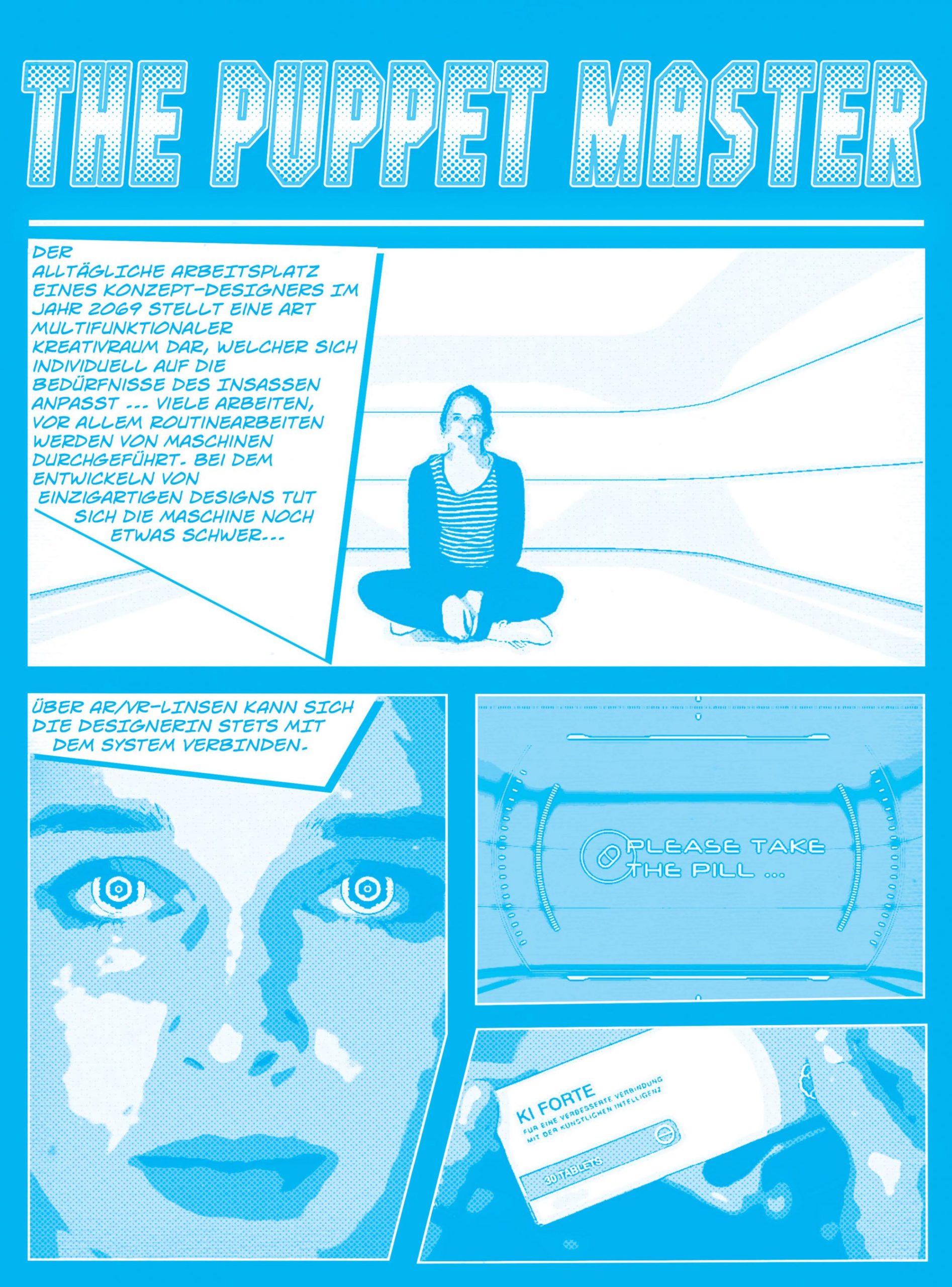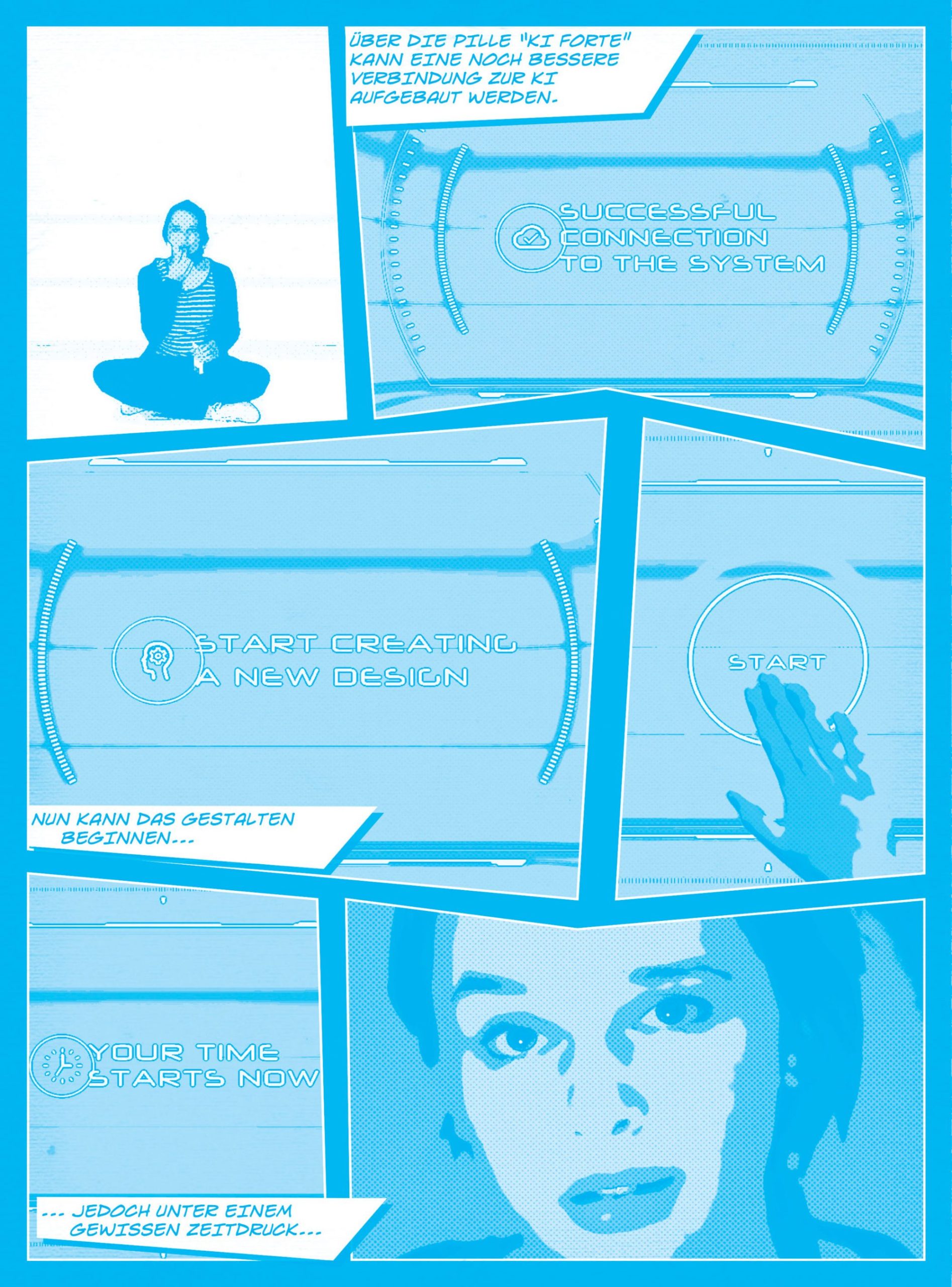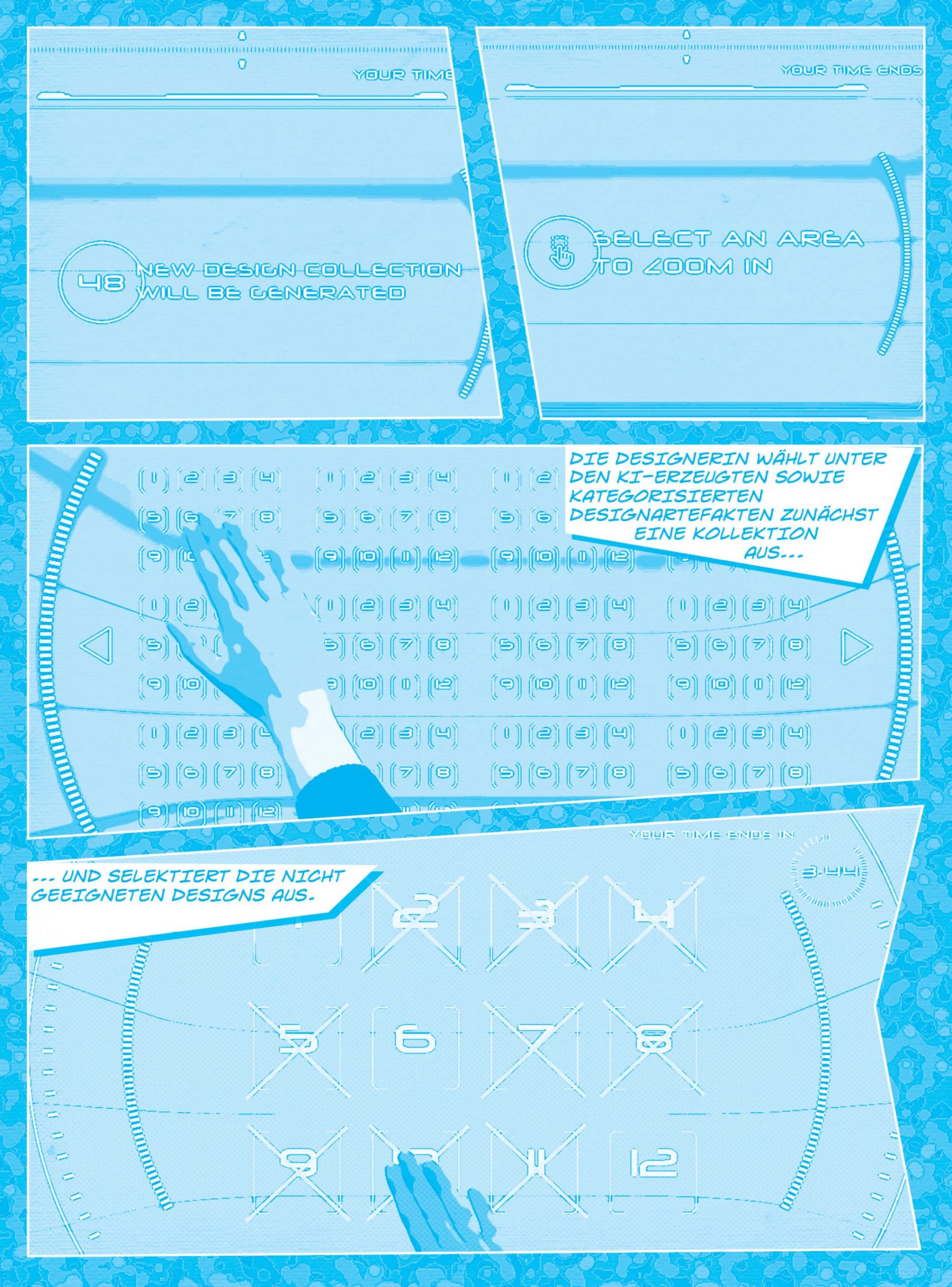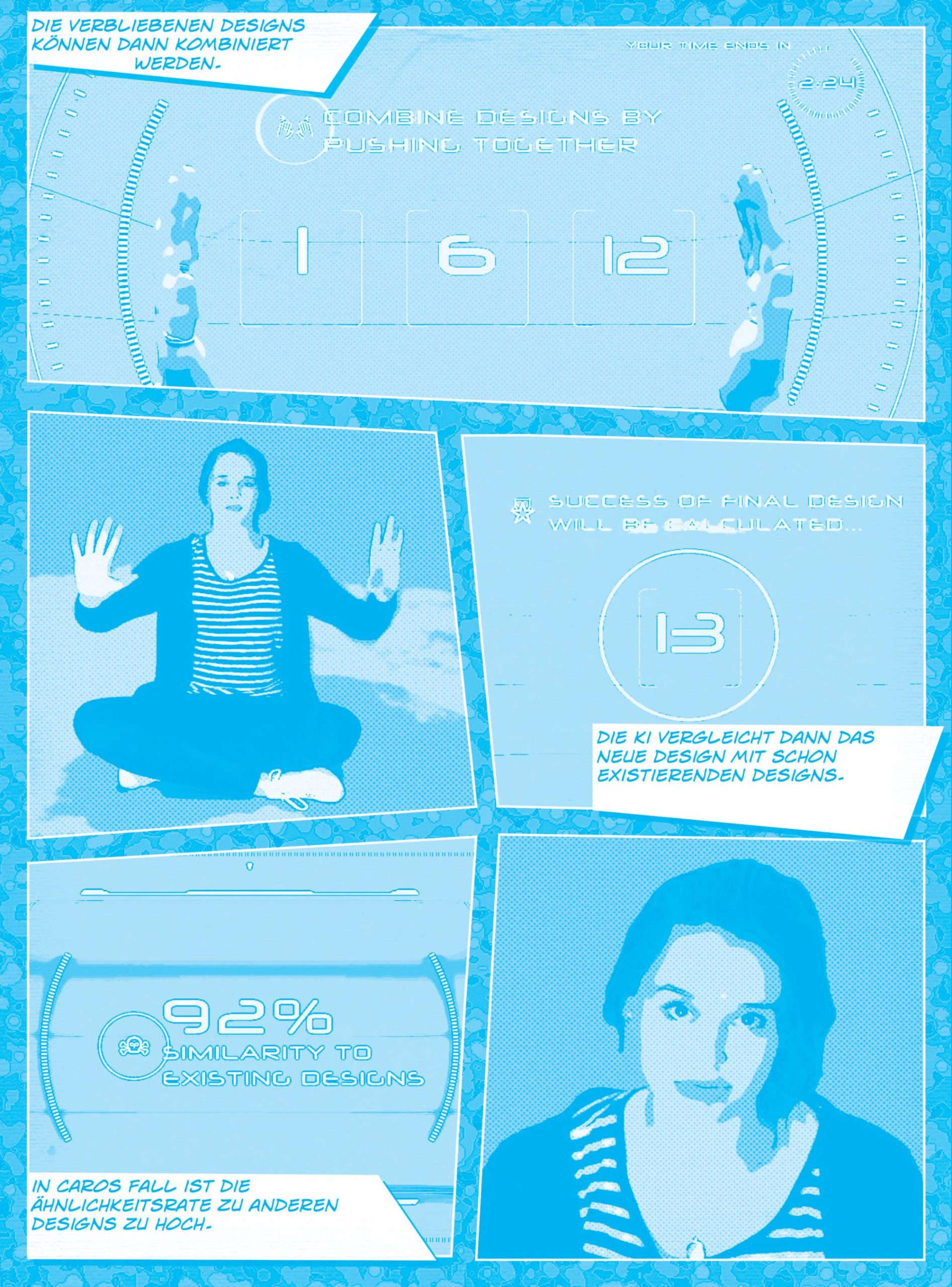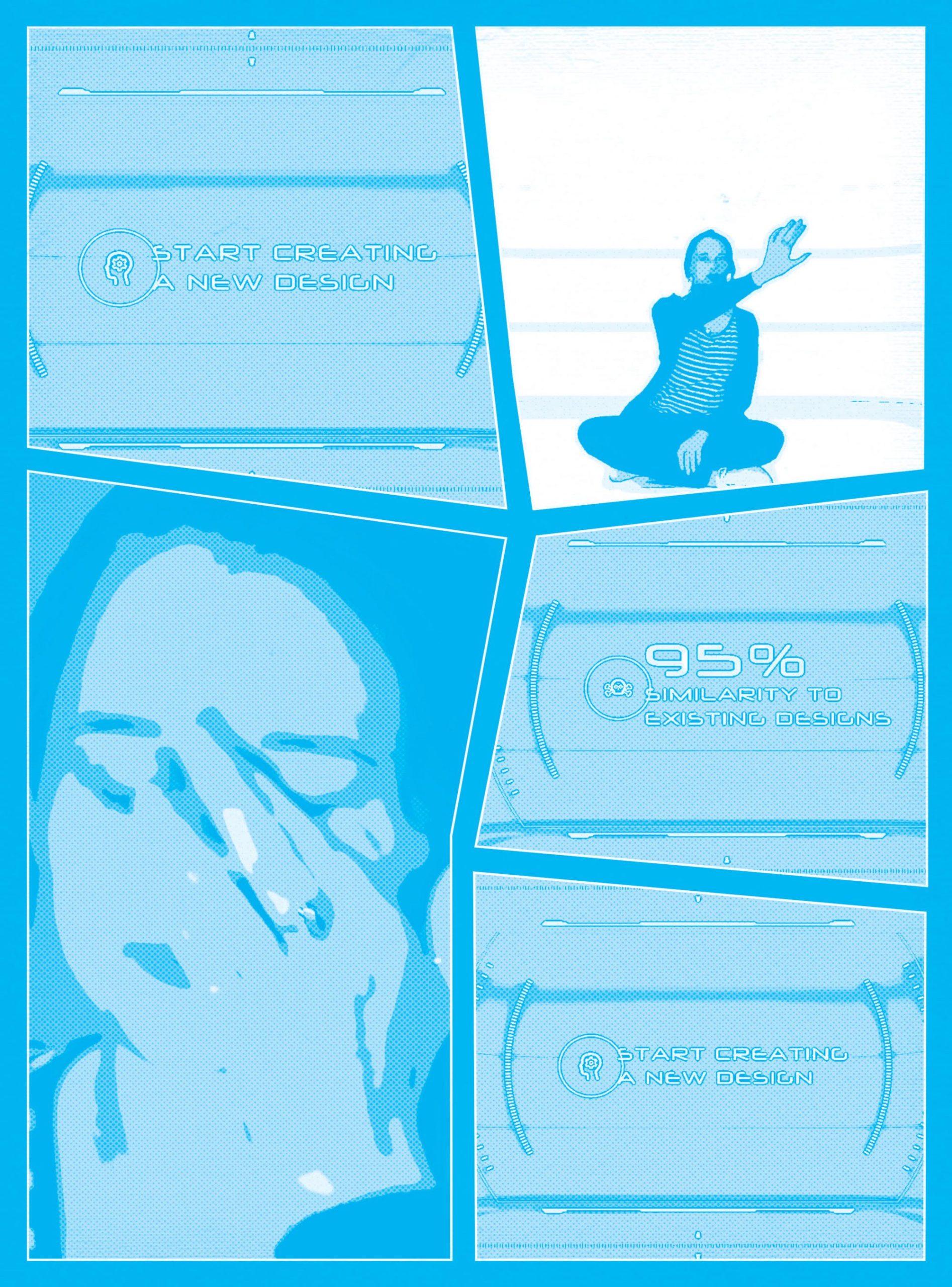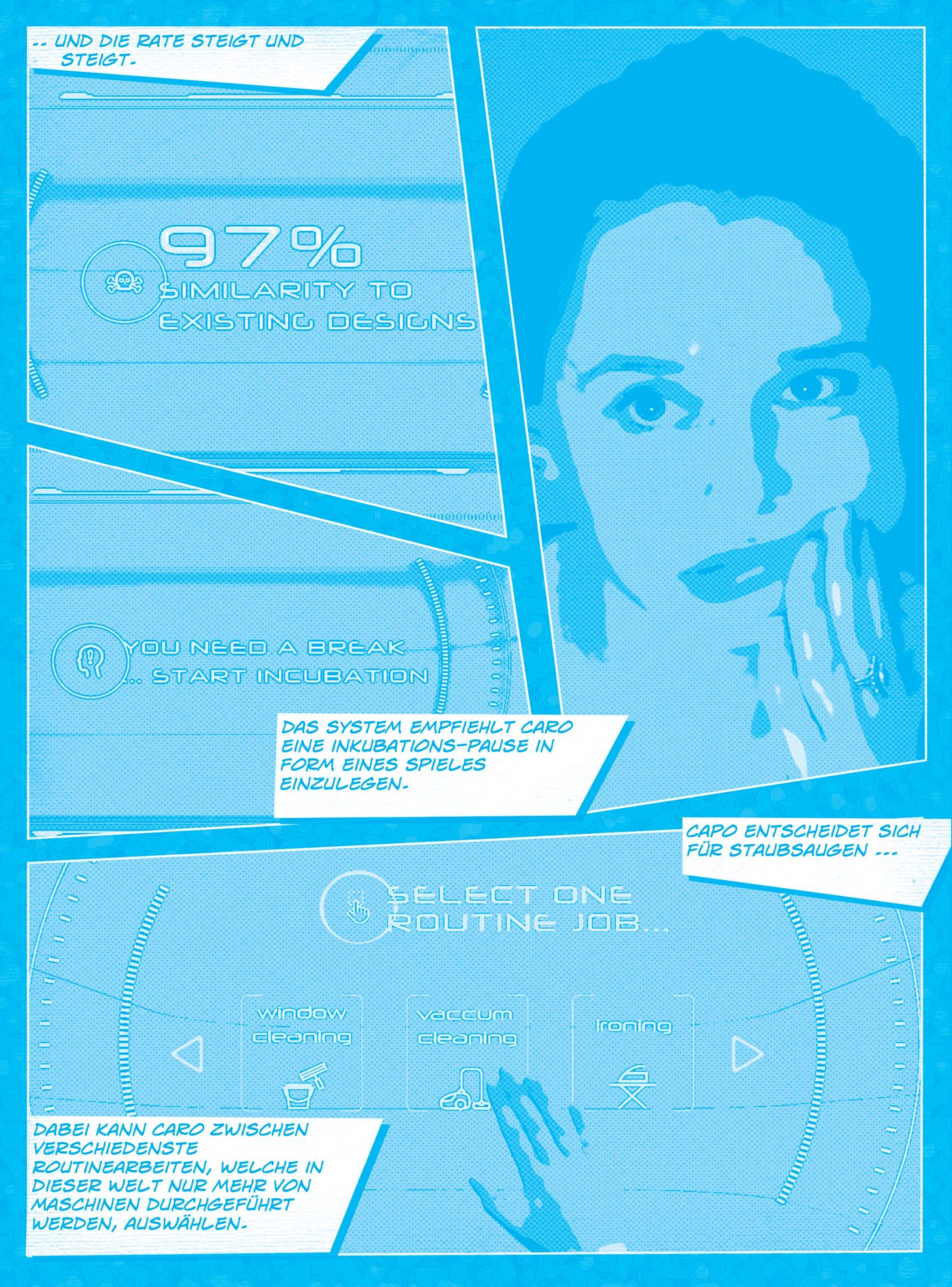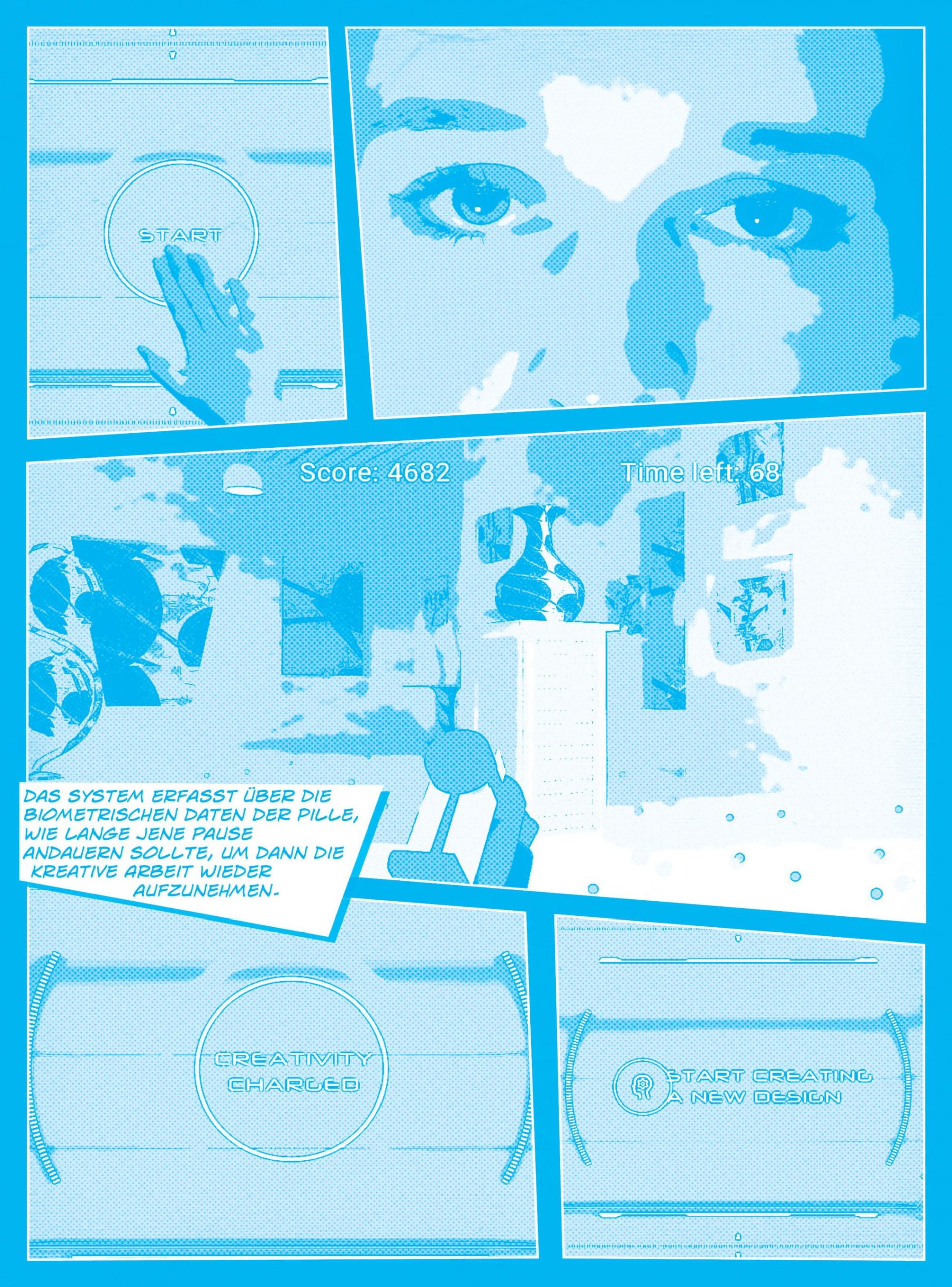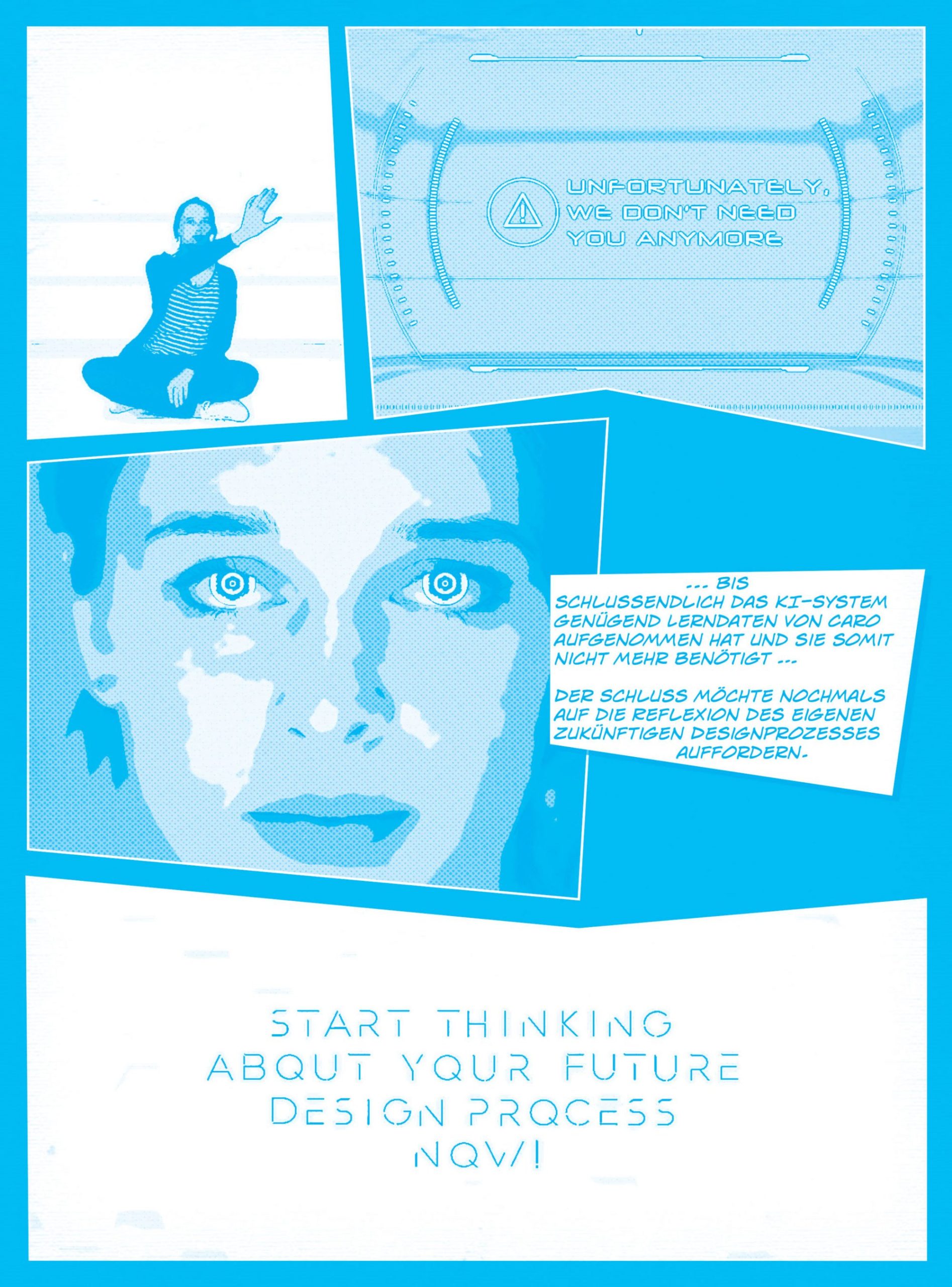The Puppet Master
A design fiction video scenario was used to combine the theoretical explanations with the expert interview results and thus to design a new future design process for the year 2069. The aim of this final scenario was to create an AI-driven design process of the future, which was conceptualized as an experience within an exhibition.
The expert interviews raised the question: To what extent is it possible to produce creative or unique outputs on a permanent basis? This question pertains to the general process of creativity, as closely examined by Graham Wallas. Wallas uses a four-phase model to describe the creative process, which divides into the phases of preparation, incubation, illumination, and verification. The quintessence of the design fiction scenario is primarily related to incubation, the second phase in Graham’s model. This phase involves the distraction of human attention from the original problem due to routine tasks.
In a future world in which there are no routine jobs, an application must be created to enable this phase of creative work. The application was presented in a cinematic design fiction scenario in the form of a VR app that allows the user to perform various household chores (e.g., vacuuming, cleaning windows, or ironing) in a playful manner and thus complete the incubation phase. Therefore, the presented content was intended to ironically draw attention to the importance of the entire design process and question the function of AI automation, particularly for non-creative phases of the design process.
date
january 2020
role
conception / film shoot / cut / effects
context
master thesis

